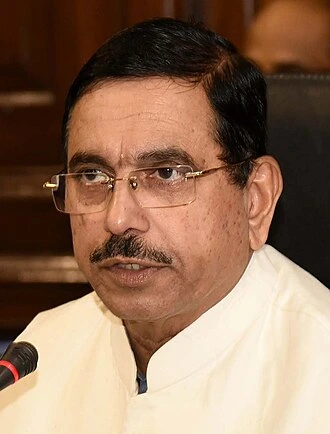Union Minister for Food and Consumer Affairs, Pralhad Joshi, has assured that the recent export restrictions on certain agricultural commodities will not adversely affect Indian farmers. Speaking on December 23, 2024, Joshi stated that the government’s primary focus remains on safeguarding the interests of both consumers and producers, ensuring that food security remains intact. Mr Joshi also touched on several pressing issues related to inflation in essential food items, the government’s efforts to maintain price stability, and the long-standing debate over Minimum Support Prices (MSP).
On the eve of National Consumer Day (December 24), the Ministry of Food and Consumer Affairs announced the launch of the Jago Grahak Jago App, Jagriti App, and Jagriti Dashboard, designed to protect consumers from deceptive online practices. Joshi emphasized that these initiatives, along with the signing of a voluntary consumer safety commitment by 13 e-commerce companies, reflect the government’s dedication to consumer welfare.
In response to a recent comment by Vice-President Jagdeep Dhankhar on enhancing MSP, Joshi reaffirmed that there is no conflict between the interests of consumers and farmers. He pointed to the government’s consistent hike in MSPs over the years as a testament to its commitment to supporting farmers. For example, the MSP for gram (chickpeas) has risen from ₹3,100 per quintal in 2013-14 to ₹5,650 per quintal in 2024-25, a significant 82% increase.
Joshi emphasized that the government’s policy has always been to ensure an abundant supply of food products, which ultimately benefits consumers. “The key to consumer welfare is having ample availability of food produced by farmers,” he noted, adding that increasing MSP has been an essential part of this strategy.
Regarding concerns over the rising prices of tomatoes, potatoes, and onions, Joshi provided an optimistic update. He noted that the prices of tomatoes and onions, which had seen sharp increases earlier in the year, have started to stabilize due to favorable weather conditions. “The situation has normalized with improved weather. Kharif onion sowing and production are also reported to be normal,” he said. He also highlighted the role of the onion buffer, which helped keep prices affordable during lean months, with retail prices in major cities stabilizing at ₹35 per kilogram.
On the issue of tomato prices, Joshi explained that the prolonged monsoon rains had caused crop damage, leading to price hikes in October. However, the weather conditions have since improved, and prices are now on a downward trend. Additionally, potato prices, which had been higher than usual due to slightly lower production, are expected to ease as the harvest season begins in early 2025.
One of the most debated topics recently has been the government’s decision to impose export curbs on certain agricultural commodities. Joshi responded by clarifying that food security takes precedence over international trade benefits. “It will not be advisable for a large country like India to gamble on international trade when it comes to food security. Domestic requirements must always come first,” he asserted. He added that the export restrictions had not harmed Indian farmers as they continued to benefit from high domestic prices and MSP procurement.
On the broader issue of trade, Joshi also addressed concerns about the government’s implementation of Quality Control Orders (QCOs) on goods and services. These orders are designed to set standards for a wide range of products, improving both imports and exports. Joshi noted that standardization for 769 products had already been established under the Bureau of Indian Standards (BIS) Act, 2016. He assured that regulators were working closely with stakeholders to address any concerns, including extending timelines for the implementation of these standards where necessary.
The Union Minister further emphasized that the government’s approach to QCOs was aimed at ensuring a smooth transition without disrupting production, and consultations with industry stakeholders were ongoing to mitigate any adverse effects. He reassured that the government was committed to striking a balance between industry needs and consumer protection, ensuring no significant gaps in supply.
Looking ahead, Joshi reiterated the government’s commitment to maintaining a balance between consumer and producer interests, stressing that the country’s food security would always be the top priority. As the year draws to a close, the government’s efforts to stabilize prices and protect consumers continue to be central to its policy agenda.
In sum, the Union Minister’s remarks reflect a well-rounded approach to managing food security, price stability, and consumer protection in India. As the nation faces global challenges in agriculture, the government remains focused on ensuring that both farmers and consumers benefit from its policies.





